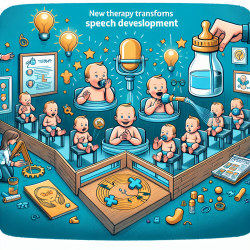The rapid integration of mobile phones into everyday life has sparked numerous discussions about their impact on children’s development. As practitioners working with children, it is crucial to understand how these devices might influence various aspects of child adjustment. A recent study titled "Are mobile phone ownership and age of acquisition associated with child adjustment? A 5-year prospective study among low-income Latinx children" provides valuable insights into this topic.
The Study at a Glance
Conducted over five years, this longitudinal study examined the relationship between mobile phone ownership and child adjustment among low-income Latinx children. The research involved 263 participants, with a mean age of 9.5 years at the baseline. The study aimed to explore whether owning a mobile phone and the age at which it was acquired were linked to changes in depressive symptoms, school grades, and sleep patterns.
Key Findings
- No Significant Impact on Mental Health: The study found no statistically significant associations between mobile phone ownership or the age of acquisition and depressive symptoms in children.
- Academic Performance Unaffected: Similarly, there was no evidence to suggest that owning a mobile phone or the age at which it was acquired affected children's school grades.
- Sleep Patterns Remain Stable: The research also indicated that neither mobile phone ownership nor acquisition age had a meaningful impact on children's sleep patterns.
The results suggest that concerns about mobile phones negatively impacting child adjustment may be overstated, at least within the context of this study's demographic group.
Implications for Practitioners
For practitioners working with children, these findings offer several important implications:
- Focus on Other Factors: Given the lack of significant associations found in this study, practitioners might consider focusing more on other factors that could influence child development, such as family dynamics or educational support.
- Encourage Balanced Use: While this study did not find negative impacts from mobile phone use, encouraging balanced screen time remains important for overall well-being.
- Cultural Sensitivity: Understanding cultural contexts is crucial when interpreting research findings and applying them in practice. This study focused on low-income Latinx children, highlighting the need for culturally sensitive approaches in similar research.
The Need for Further Research
This study provides a foundation for understanding the relationship between mobile phone use and child development but also highlights the need for further research. Future studies could explore different demographics or incorporate additional variables such as social media use or parental involvement in technology use.
Practitioners are encouraged to stay informed about ongoing research in this area to better support their work with children and families. Engaging with new studies can provide deeper insights into how technology interacts with various aspects of child development.
Conclusion
The findings from this study challenge some common assumptions about mobile phones and child development. While technology continues to evolve rapidly, understanding its impact requires ongoing research and thoughtful application in practice. By staying informed and open to new insights, practitioners can effectively navigate the complexities of technology's role in children's lives.










